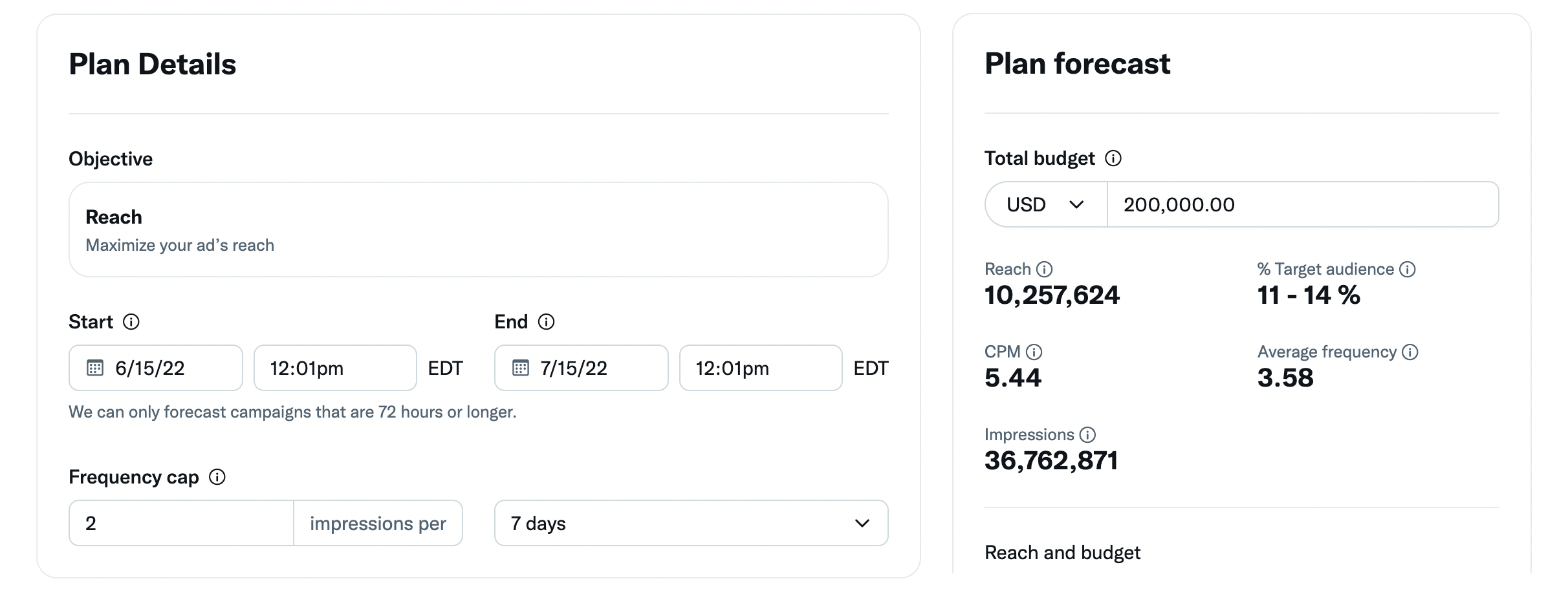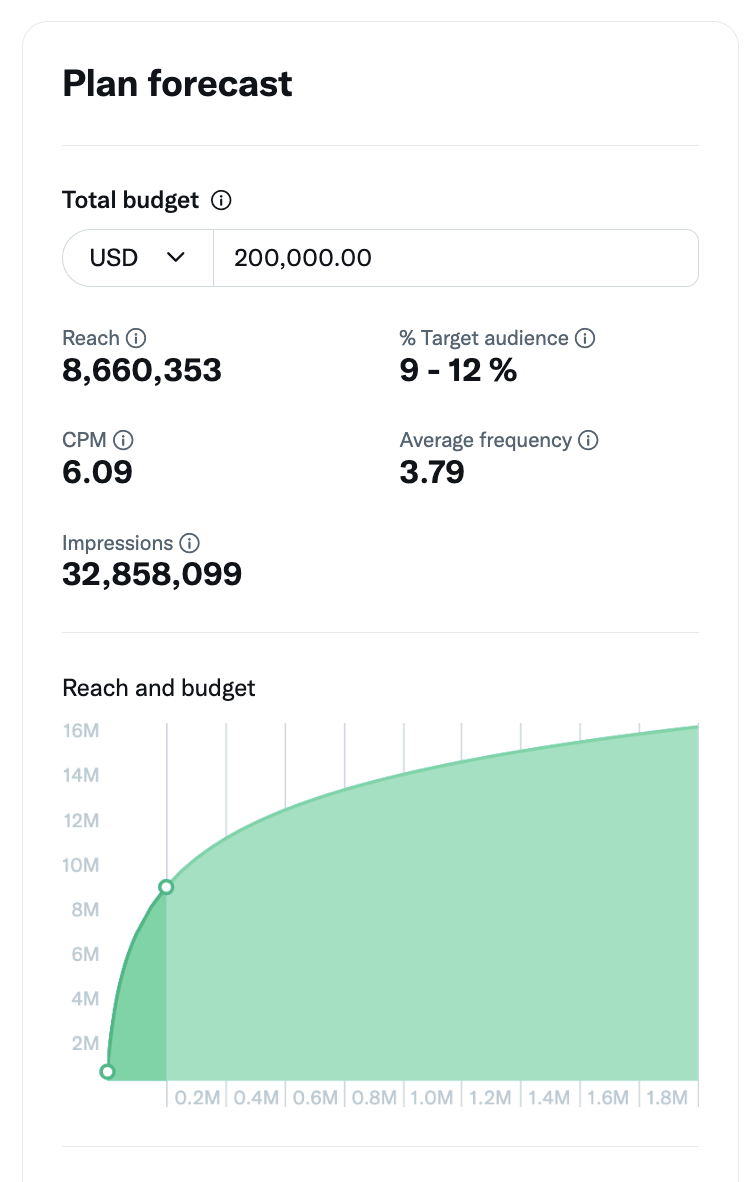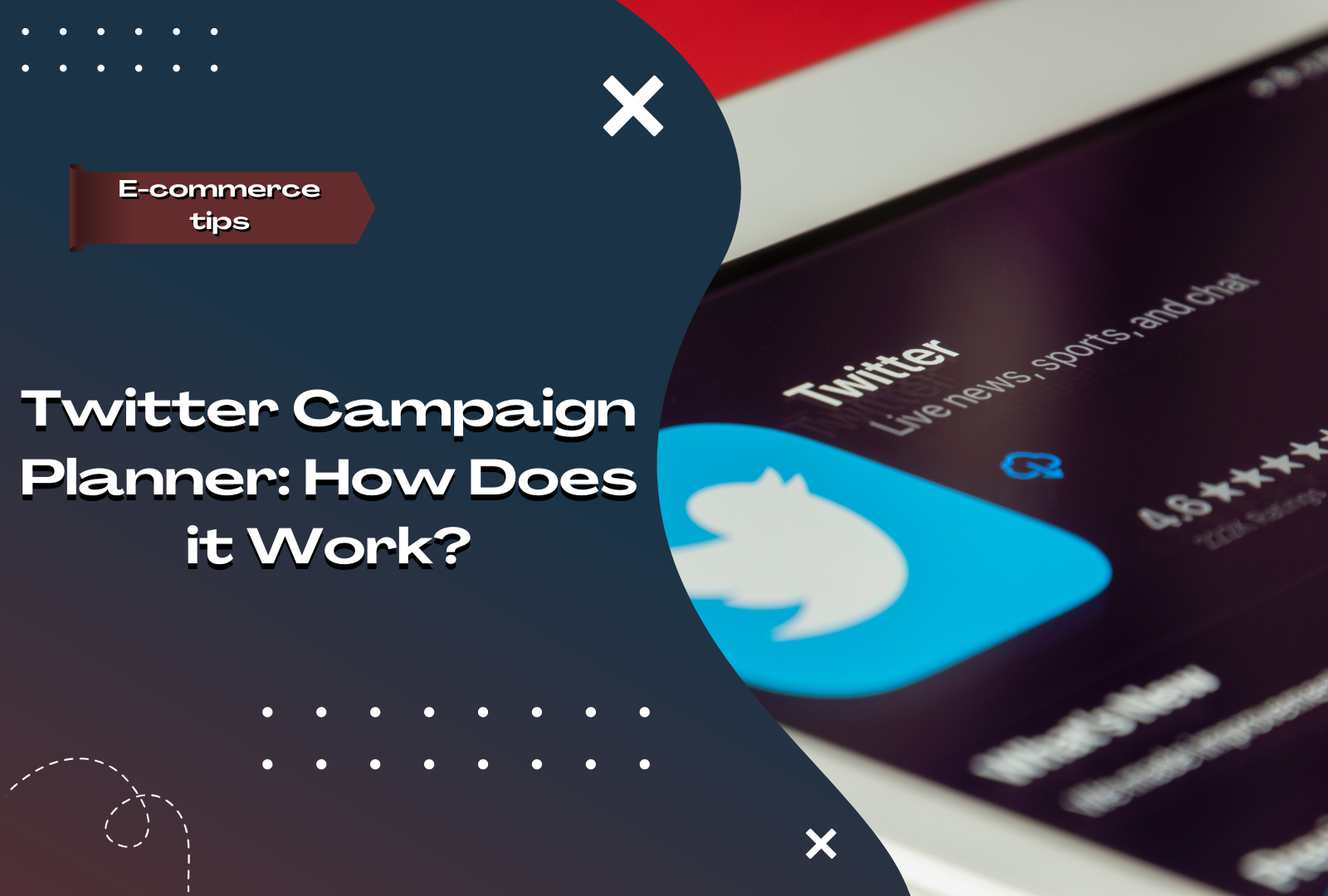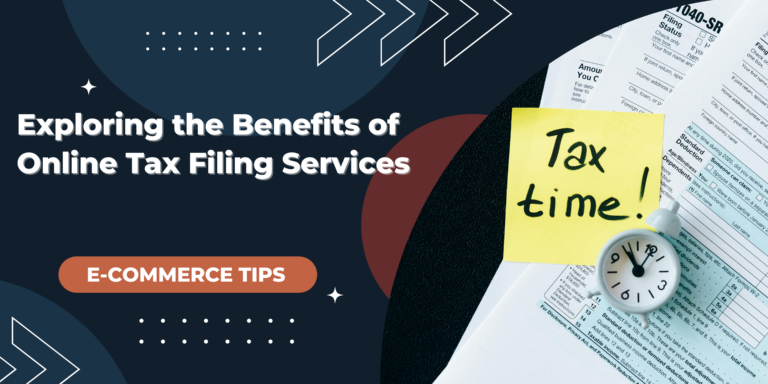Twitter Campaign Planner: How Does it Work?
Have you ever tried Twitter Ads and didn’t achieve the results you wanted? Maybe the conversions were low, or you weren’t able to maximize your ad’s reach. As an advertiser, it can feel frustrating whenever a campaign doesn’t go the way you initially planned. Thankfully, the platform has released a new forecasting tool called Twitter Campaign Planner to help brands achieve their advertising goals.
The question is, how does Twitter’s Campaign Planner work? In this article, we’ll discuss the platform’s new forecasting tool so you can take advantage of its features.
What is Twitter Campaign Planner?
Twitter’s Campaign Planner is an all-new feature that lets advertisers estimate campaign results before they go live. You can forecast reach, impressions, cost per mille (CPM), and a bunch of other factors that determine the success of your ad campaign.
Regardless of the size of your business, it’s always important to maximize your advertising budget. The planner supports budget forecasting for auction-based campaigns, giving you critical information on the costs needed to reach your audience.

Twitter initially offered the feature to the U.S., U.K., and Japanese advertisers but has since expanded to serve fifteen more countries, including Canada, Australia, and Brazil. Twitter aims to empower advertisers with their new forecasting tool by providing in-depth insights that allow them to make data-driven decisions.
How do you use Twitter Campaign Planner?
Using Twitter’s new forecasting tool is pretty straightforward, as the planner automatically provides predictions based on your campaign details. To start, you can access Campaign Planner through your Twitter Ads account. From there, you just need to follow these steps to obtain campaign forecasting:
Step 1: Set an objective for your campaign
The first thing you need to do is to choose the objective for your campaign. Twitter’s Campaign Planner currently supports two objectives, and these are the Reach and Video Views.
The Reach objective is about maximizing the number of users that see your ad for the campaign duration. If you want to build brand awareness and reach as many people as possible, then set the Reach objective for your campaign.
The Video View objective, on the other hand, focuses on brand engagement through GIFs and videos. If you’re planning to launch a new product, and want to generate interest from your target audience, then Video Views should be your campaign objective.
Step 2: Set the duration of your campaign
Once you’ve chosen the objective for your campaign, the next step is to set the duration of your campaign. Ideally, your ads campaigns should run for at least a week to allow the ads to mature, but since the planner is a forecasting tool, you can set it for 3-5 days.
Step 3: Set the frequency cap
The frequency caps refer to how many times a user can see your ads throughout the campaign. It’s a feature that helps maximize impressions by giving advertisers more control over their media delivery, thus leading to improved brand awareness and recall. Set the duration of your campaign’s frequency cap and move on to the next step.
Step 4: Choose your ad placements
Placements are where your ads will appear on a user’s feed. Twitter sets ads to be visible on the Home timeline by default, but you can also place your ads on profiles, search results, and replies.
The more placements you choose, the more potential reach your ads will have. Of course, the results will vary depending on the nature of your ad, but it’s good practice to place your ads on search results as people often use the search box to find relevant products/services.
Step 5: Set the demographics of your target audience
Next is setting the demographics of your target audience; gender, age, and location. You can also opt for language targeting, depending on your location.
Location targeting supports up to eighteen countries; the United States, Canada, Mexico, Japan, South Korea, India, Philippines, Australia, Thailand, Spain, France, United Kingdom, Sweden, Germany, Turkey, Saudi Arabia, Brazil, and Argentina.
Step 6: Starting the campaign planner
After filling in the relevant information, it’s time to draft your ad campaign. Twitter makes it easy to draft campaigns as you can prepare them right from the planner itself. Hit the “start draft campaign” button, and the planner will show forecasts on the potential performance of your campaign.
On the right side of the campaign planner, you’ll see a “Plan Forecast” section that includes details on your campaign’s potential reach, impressions, CPM, and more. Let’s discuss each element visible in the Plan Forecast section:

- Total budget – The overall cost for your ad group.
- Reach – The potential number of users that will see your ad.
- Target audience % – The percentage of your target audience that can potentially see your ad.
- CPM – The cost for every 1,000 impressions your ad receives.
- Impressions – The estimated number of times your ad appears to users.
- Average frequency – The frequency a user sees your ad.
At the bottom, you’ll see a curve graph that shows the estimated impressions your campaign can reach on different budget levels. Click on the desired budget level you want for your campaign to get an idea of the potential impressions you can get.
Is Twitter Campaign Planner right for you?
Whether it’s your first time using Twitter Ads or you want to improve the performance of your ad campaigns, the campaign planner is a useful tool that can aid you in your advertising goals. That said, the forecast numbers are more of an estimate rather than an accurate prediction, so keep that in mind when using the campaign planner.
Here are a couple of instances where Twitter’s Campain Planner may work for you:
- You’re a small business owner that wants to maximize your advertising budget. With Twitter’s campaign planner, you can forecast the performance of your ads before spending your advertising dollars.
- You want to test the waters with a new product or service. Running the campaign planner allows you to gauge the potential reach of your ads to see how much interest your new product/service can generate.
- Your ad campaigns aren’t producing the results you expect. Perhaps you want to change your objectives or fine-tune your ad placements. The campaign planner lets you make quick adjustments to your campaigns before they go live.
You want to know if your ads are reaching your target audience.
Considering that the campaign planner is a relatively new release, Twitter may announce new features down the line to expand the forecasting tool’s capabilities. It’s a good idea to test it out and let the tool mature to determine its fit with your brand’s advertising goals.
Wrapping up
Advertising on Twitter has never been easier thanks to the platform’s Campaign Planner. By giving you in-depth insights into the possible performance of your campaigns, you can better optimize your ads for future success. Of course, you need to be familiar with how Twitter ads work, so it’s best to do your research and supplement that knowledge with this new tool.
Managing the financial health of your company is crucial to success. If you need any help with expert bookkeeping services, our team is ready to assist you. Simply fill out the form below, and our team will contact you shortly.







